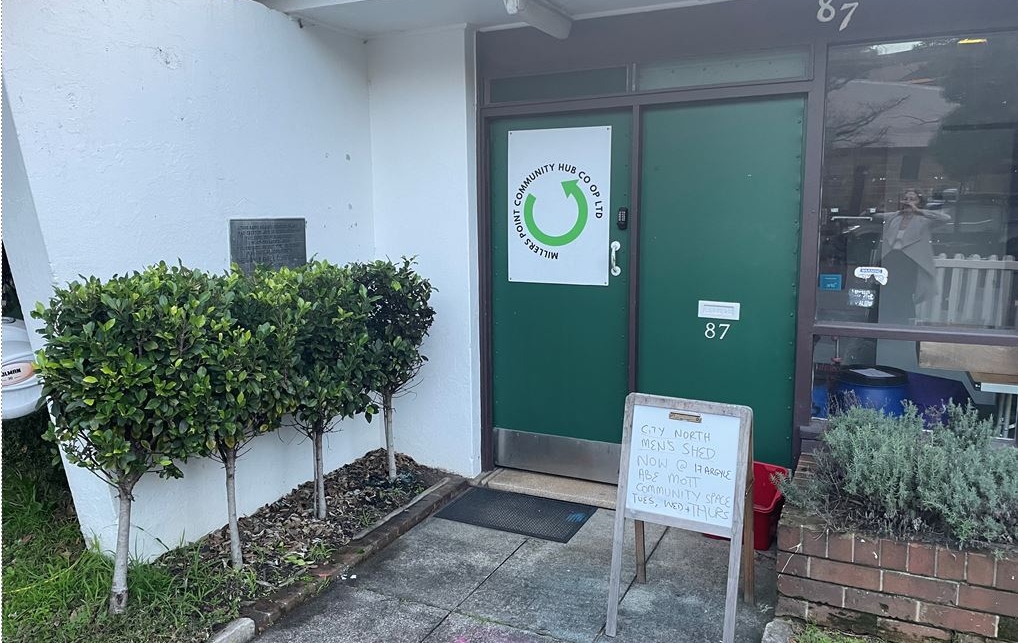

By ROBBIE MASON
A new report from GetUp and the Antipoverty Centre has labelled Australia’s social security system a “poverty machine” and exposed the insidious impacts of ‘mutual’ obligations on the mental health and financial status of welfare recipients.
The nation’s social security system is rife with bullying, harassment, discrimination and administrative payment errors, the Punishment for Profit report details.
The news comes as Labor members debate economic inequity at their national conference today. The first major agenda item at this week’s Labor National Conference is “an economy that works for everyone”, but the Punishment for Profit report shows that vast swathes of the nation’s pool of welfare recipients are being excluded from the conversation about their future and shoved into financial hardship and mental anguish by private job service providers.
Lead author Jay Coonan from the Antipoverty Centre, a non-partisan advocacy organisation run by people with direct contemporary experience of poverty and unemployment, said, “this is a system that punishes us for being poor. ‘Mutual’ obligations exist to deter people from accessing welfare, not to help us find a suitable job.”
93 percent of the study’s 600 participants said ‘mutual’ obligations directly harm their mental health.
This system of welfare compliance, managed by privatised employment service providers at a cost of $4 billion a year and styled ‘mutual’ obligations, has long attracted criticism from cultural commentators and welfare recipients as humiliating, ludicrous, obstructively onerous and coldly bureaucratic.
Chido Dunn, Campaign Director at GetUp, highlighted the “devastating harm caused when vital social programs like employment services are outsourced to private companies who care much more about profit than they do about people.”
Coonan stated, “there is no version of ‘mutual’ obligations that isn’t degrading. There is no version of ‘mutual’ obligations that isn’t intrusive. There is no version of ‘mutual’ obligations that isn’t controlling.”
The report shows that private job service providers fail to help welfare recipients find secure long-term work, pushing them, in fact, deeper into financial adversity.
As Coonan explained, “only 2.3 percent of employed people we surveyed found a job with the help of an employment services provider. We need to scrap ‘mutual’ obligations and design a public employment service that helps people find safe, secure and sustainable jobs.”
The hefty 58 page reports paints a dire portrait of the privatisation of employment services, which occurred in the 1990s under the Keating and Howard governments. Job service providers have morphed into “substitute public institutions” involved in healthcare, foodbanks and housing, creating a “feedback loop” whereby “providers are now deemed too big to fail by government”, the report’s authors write.
The anonymisaton of study participants is a recurring theme throughout the hefty 58 page report. Coonan said that apprehensiveness around identification stems from the fear of “repercussions”. He highlights the findings of the Robodebt Royal Commission as proof.
Across near 1000 pages, the report of the Royal Commission into the Robodebt Scheme, released to the public in July this year, details the unjust and ill-conceived recovery of supposed overpayments to welfare recipients via an automated income averaging system and third party debt collectors between 2016 and 2020.
The investigation demonstrated that the robodebt scheme was not just a technological glitch and legal oversight but a direct exploitation of vulnerable Australians which lacked empathy. The Robodebt scheme drove many welfare recipients to deep despair and suicidal ideation. Families struggled to make ends meet when they received debt notices around Christmas time. The mass debt recovery left parents unable to pay for medication for infant children. The Royal Commission report directly linked three known suicides to the impact of debt collection.
Frustration with job service providers and humiliation common
Aeryn, who estimates that she has had 9 years of experience with employment service providers, told City Hub that they have actively hindered her chances of finding work.
“It’s been a disaster to put it lightly,” she said.
Her last job provider, MBC Employment Services, who worked with her from 2018 to 2019, pushed her to breaking point, forcing her to accept work that was “wholly unsuitable” for her medical conditions. She has accused staff there of bullying her.
Aeryn had three panic attacks during her time with MBC.
“With the first one, I had been coerced into doing a communications workshop even though I have a literal degree in communications,” she explained.
“That [panic attack] was triggered by too many people in too small a space. She [Aeryn’s case worker] hadn’t taken my anxiety disorder seriously before then. She really wasn’t understanding.”
After this, MBC staff pressured her to do call centre work.
“I had a hard enough time calling you,” she told City Hub, “let alone calling people day in day out.”
When Aeryn told her caseworker she wasn’t interested, her caseworker threatened to report her to Centrelink.
“I then had a panic attack in my backyard,” Aeryn said.
Aeryn shifted to disability employment services in 2019 following her third panic attack in one year.
Alex*, meanwhile, said that his experiences with ‘mutual’ obligations while on JobSeeker were “neutral”. That is, they neither helped nor hindered his job prospects. But he said staff at job service providers never adequately inquired about his personal circumstances and failed to empathise with him.
While Alex was studying full-time at uni, a job provider pushed Alex to work night shifts at a Woolworths warehouse straight after class. For Alex, this would have meant “16 to 20 hour days”.
“I don’t think they understood or cared that that was brutal.”
Alex described to City Hub an unfair suspension of his Centrelink pay that ended in a “screaming match” over the phone following “half an hour of circular conversation”, which involved a job agency staff member trying to reverse the blame onto Alex. At the end of the phone call, the job provider agreed to reinstate the payment.
“This was an incredibly awful frustrating conversation that was backed up by desperation on my part. I needed this money to live. This was my lifeline at that time,” Alex recounted.
85 percent of the participants in the Antipoverty Centre and GetUp study said they had experienced issues with job providers mistakenly cutting off income support payments.
The report highlights not only cases of mental harm but unreported physical harm and negligence.
One anonymous survey contributor said, “I was told I would be doing ‘retail’ training at Salvation Army. I was actually told to move furniture around. I slipped a disc in my back and have had serious back issues ever since. The job agency I was tied to swept it under the table, it was never logged as an accident with anyone.”
Where to now for Australia’s social security system?
Calling for the cessation of punitive policies, the authors of the Punishment for Profit report detail an extensive list of practical recommendations and creatively reimagine employment services, suggesting the abolishment of ‘mutual’ obligations.
Many recommendations centre on the democratisation of employment programs and accountability provisions. The study recommends, for instance, the establishment of local oversight groups, comprised of people accessing welfare benefits, who would hold service providers accountable.
Vested groups have come out in support of the report’s recommendations.
Terese Edwards, CEO of Single Mother Families Australia, has demanded “a radical overhaul of Workforce Australia”.
“A superior approach would be abolishing mutual obligations and enabling job search support for all people seeking employment,” she said.
“Removing the punitive and onerous demands would produce savings that could be reinvested into an enhanced participation fund for social security claimants. Creating a new model that is community-led, responsive to local workforce needs and well-placed to meet the aspirations of each community”.
Welfare advocacy organisations have pledged to support – and contribute to – reports on Australia’s social security system.
Jeremy Heywood, President of the Australian Unemployed Workers’ Union, said, “volunteer and underfunded advocacy groups like the Antipoverty Centre and the Australian Unemployed Workers’ Union spend thousands of hours each year supporting our communities to defend their rights and dignity, and writing beautifully detailed and comprehensive reports telling the government the same simple truths: mutual obligations are a punitive system built on flawed and cruel ideology.”
“We are committed to repeating ourselves with newer and more damning data for as long as it takes,” he continued.
Echoing Heywood, Jay Coonan from the Antipoverty Centre stated, “a lot of people do this out of a sense of purpose and goodwill. We will keep doing this for as long as we have to.”
* This person’s name has been changed to protect their identity.









